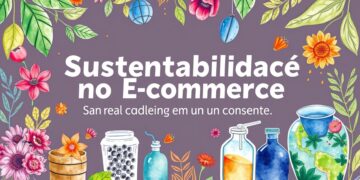Sustainable Marketing Strategies of Shein in a Changing Market

Understanding the Shift Towards Sustainability in Fashion
The fashion industry is undergoing a significant transformation as consumers demand brands to adopt more sustainable and ethical practices. Shein, a leading name in fast fashion, recognizes this shift in consumer sentiment and is adapting its strategies accordingly. As environmental concerns and ethical considerations rise to the forefront, brands like Shein are compelled to reassess their branding and operational frameworks to align with these new consumer expectations.
In recent years, heightened environmental awareness has dramatically influenced consumer choices. Studies indicate that more than 70% of consumers now express a preference for brands that actively engage in sustainable practices. This increasing demand stems from a broader recognition of the fashion industry’s contribution to pollution and waste, with *Fast Fashion* often cited for its detrimental impact on ecosystems.
Additionally, corporate accountability has gained traction, as consumers and advocacy groups scrutinize brands for their sourcing and manufacturing ethics. High-profile cases exposing unethical labor practices or environmental damage have amplified calls for transparency and responsibility within the industry. Around 60% of consumers, particularly those from Millennial and Gen Z generations, prioritize eco-friendly options in their purchasing decisions, mandating a seismic shift in market dynamics.
In response to these changes, Shein has implemented a variety of sustainable marketing strategies. One vital approach is the commitment to the use of eco-friendly materials; Shein has pledged to source a greater percentage of its products from sustainable textiles like organic cotton and recycled fibers. These materials not only minimize environmental impact but also resonate with consumers seeking more conscientious choices.
Moreover, Shein has emphasized community engagement by forming partnerships with local organizations to bolster environmental initiatives. Such collaborations not only improve the company’s public image but also demonstrate a commitment to ongoing investment in local communities. An example is Shein’s “Shein Cares” initiative, which aims to support various sustainability projects aiming to preserve natural resources.
Another critical component of Shein’s strategy involves increasing transparency in its supply chain. The brand is working towards providing clearer insights into its production practices. Initiatives like disclosing supplier information and promoting fair labor practices aim to foster trust and credibility among consumers who are increasingly informed and discerning.
As we analyze the effectiveness of Shein’s sustainable marketing strategies, it becomes clear that the company’s adaptation is not just a business necessity but a reflection of a broader industry trend. By aligning their practices with the evolving demands of today’s consumers, brands like Shein can not only secure their market position but also contribute positively to the environment and society. Understanding these strategies sheds light on the larger conversation about sustainability in fashion, encouraging consumers to be more mindful and proactive in their choices.
DIVE DEEPER: Click here to discover Shein’s innovative approach</a
Innovative Approaches to Eco-Friendly Fashion by Shein
As a dominant force in the fast fashion landscape, Shein’s commitment to sustainability is uniquely challenging yet increasingly vital. Recognizing the importance of integrating sustainable marketing strategies, Shein has embarked on a multifaceted approach to not only address consumer demands but also contribute to a healthier planet. This strategy encompasses product innovation, responsible sourcing, and robust community engagement efforts.
To understand Shein’s initiatives, it’s essential to highlight some of the key strategies that the brand is employing:
- Utilization of Sustainable Materials: Shein’s commitment to integrating eco-friendly textiles such as organic cotton and recycled polyester into its collections is a significant step towards reducing its environmental footprint. By investing in these innovative materials, Shein not only mitigates pollution but also aligns with consumer preferences for cautious consumption.
- Empowering Local Communities: Shein has initiated programs that support local artisans and craftspeople, encouraging traditional skills while fostering local economies. Such efforts not only improve Shein’s brand image but also emphasize the role of community in achieving sustainability through jobs and training.
- Transparency and Ethical Practices: Today’s consumers demand clarity about the brands they support. Shein is taking steps to increase transparency in its supply chain by sharing information about partners and labor practices. This initiates a two-fold effect: building trust among consumers while simultaneously holding the company accountable to ethical standards.
An integral aspect of Shein’s marketing strategy is the continual communication of its sustainability efforts. By utilizing social media platforms, the brand engages directly with its audience, showcasing its eco-friendly initiatives and sustainability goals. This not only educates consumers but also cultivates a loyal customer base that values eco-conscious practices. With dynamic campaigns that resonate with the ideals of the environmentally aware shopper, Shein effectively merges style with responsibility, portraying sustainability as a core facet of modern fashion.
However, the journey towards sustainability is far from effortless. As Shein navigates through challenges such as changing regulations, consumer skepticism, and the complexities of transforming ingrained fast-fashion business models, the company remains poised to innovate with its strategies. For example, Shein has launched initiatives aimed at minimizing water and energy usage during production, thus significantly lowering its carbon footprint. Such moves not only ensure compliance but also position the brand favorably as an industry leader in eco-friendly practices.
Moving forward, Shein’s proactive stance on sustainability can serve as a blueprint for other brands in the relentless pursuit of balancing consumer demands with environmental responsibility. The strategies implemented reflect not just a reaction to a changing market but an integral part of the brand’s evolution towards a sustainable future. By embracing sustainability, Shein sets a standard that many throughout the industry may soon be compelled to follow. Ultimately, this pivot may reshape consumer expectations in ways that have long-lasting implications for the fashion world.
Sustainable Marketing Strategies of Shein in a Changing Market
As the retail landscape evolves, companies must adapt to shifting consumer values and market trends. Shein, a prominent player in fast fashion, has recognized the need for sustainable marketing strategies to maintain its competitive edge. By committing to eco-friendly practices, Shein is not only addressing consumer demands but also repositioning itself as a responsible brand.One pivotal strategy involves the use of recycled materials in their clothing lines. By integrating fabric mined from post-consumer waste, Shein enhances its product appeal while contributing to waste reduction. This initiative aligns with the growing consumer expectation for brands to prioritize environmental responsibility.Another integral strategy is Shein’s investment in technology-driven solutions to improve production efficiency. By leveraging data analytics, the brand can accurately forecast trends and manage inventory, minimizing overproduction and waste. This presents a significant opportunity for Shein to promote ethical consumption while remaining profitable in a rapidly changing market.Moreover, Shein is actively engaging in collaborations with sustainability experts and influencers to elevate its commitment to sustainable practices. By showcasing sustainable initiatives through marketing campaigns, Shein can educate consumers on the importance of eco-conscious shopping while enhancing its brand image.The company’s focus on transparency also plays a vital role in its marketing approach. By openly sharing its sustainability targets and progress, Shein builds trust with consumers, who are increasingly scrutinizing brands’ eco-credentials. This fosters a community of loyalty, as customers feel more connected to a brand that aligns with their values.Furthermore, Shein has initiated eco-friendly packaging solutions, reducing plastic use in its shipping processes. This initiative resonates well with environmentally conscious consumers who prioritize minimizing their carbon footprint, further reinforcing Shein’s commitment to sustainable growth.In summary, Shein’s innovative sustainable marketing strategies not only cater to consumers’ changing preferences but also position the brand as a frontrunner in the responsible retail sector. As the market continues to evolve, these initiatives will be crucial in maintaining relevance and fostering long-term customer relationships.
DIVE DEEPER: Click here to learn more
Leveraging Technology for Sustainable Fashion Solutions
In an age where technology is intertwining itself with every industry, Shein has recognized the power of digital innovation as a catalyst for its sustainable marketing strategies. By integrating advanced technologies into its operations, Shein is not only reinventing its business model but also reducing its ecological impact. Among the crucial techniques employed, artificial intelligence (AI) and data analytics play a vital role in making fashion more sustainable.
One of Shein’s prominent innovations is the use of AI-driven demand forecasting. This technology allows the brand to minimize waste by predicting what styles and quantities will sell well before they even hit the market. By analyzing consumer behavior analytics and shopping patterns, Shein enhances its inventory management, making it possible to limit overproduction—a notorious issue in the fast fashion industry. With this data, Shein becomes more agile, responding quickly to shifts in consumer preferences while reducing excess stock that contributes to landfill waste.
Furthermore, Shein has also ventured into virtual try-ons and augmented reality (AR) technology. These innovations aim to offer customers an immersive shopping experience that decreases the likelihood of returns—an action that significantly contributes to environmental degradation. By allowing consumers to visualize how clothing would appear on them before completing a purchase, Shein effectively reduces the number of items sent back, saving resources and energy expended in transportation.
Community Engagement Through Digital Platforms
Shein’s strength in digital marketing plays a pivotal role in enhancing community engagement by elevating sustainability dialogues. The brand encourages its consumers to participate in initiatives such as clothing swaps and upcycling competitions, all fueled through social media platforms. By creating a platform for user-generated content, Shein not only cultivates a sense of community among its consumers but also promotes a culture of sustainability where fashion lovers can share inspiration for reusing and recycling old garments.
Moreover, Shein’s collaboration with environmental NGOs and involvement in sustainability campaigns amplifies the brand’s commitment to eco-conscious practices. By forming strategic partnerships with organizations focused on environmental protection, Shein positions itself at the forefront of sustainable fashion advocacy. These collaborations not only enhance Shein’s image but directly contribute to impactful projects such as marine conservation and the reforestation of carbon-capturing forests.
Responsive Marketing Campaigns and Consumer Education
With today’s increasingly aware consumers seeking transparency, Shein has adopted responsive marketing campaigns aimed at educating its audience on sustainable fashion practices. Through informative content about garment care, the importance of eco-friendly materials, and even DIY fashion ideas, Shein aims to transform consumer mindsets about fast fashion. This educational approach signals to consumers that the brand is not just about selling products but actively contributing to a movement towards responsible consumption.
Amid the ongoing scrutiny over fast fashion’s impact, Shein’s proactive engagement in sustainability through impactful communication strategies has proven effective. Statistics reveal that brands emphasizing sustainable practices witness increased loyalty from eco-conscious consumers, and Shein, through its well-crafted messaging, aims to build a brand narrative focused on responsibility. Data from surveys show that a significant percentage of consumers in the U.S. express unwavering support for brands dedicated to sustainability, presenting Shein a unique opportunity to solidify its place in the market while redefining what it means to be a fast fashion retailer.
As Shein adapts its marketing strategies in this evolving landscape, the intersection of sustainability and innovative technology exemplifies a new direction for the fast fashion industry. Through imaginative initiatives and strategic use of digital tools, Shein not only embraces transformative change but also sets the stage for a broader dialogue on the importance of sustainability in today’s market. The ever-changing fashion realm may soon look to Shein as a leader, trailblazing new paths forward in the world of sustainable fashion.
DISCOVER MORE: Click here to dive deeper
Conclusion: The Future of Sustainable Fashion with Shein
As the fashion industry grapples with the pressing need for sustainability, Shein’s innovative marketing strategies demonstrate a remarkable shift in how fast fashion can adapt to modern consumer expectations. By harnessing technology, such as AI-driven demand forecasting and augmented reality, Shein minimizes excess production and promotes sustainable consumption habits among its growing audience. The emphasis on community engagement through digital platforms not only fosters a sense of belonging among consumers but also highlights the brand’s commitment to responsible practices, enriching the overall shopping experience.
Moreover, Shein’s proactive approach in partner collaborations with environmental NGOs solidifies its position as a leader in sustainability advocacy. By supporting projects that aim for marine conservation and reforestation, Shein reinforces the principle that sustainable marketing goes beyond mere messaging—it involves direct action for a healthier planet. As consumer awareness regarding environmental issues increases, Shein’s educational campaigns about garment care and sustainable fashion practices resonate deeply, positioning the brand favorably in the marketplace.
Looking ahead, the ability of Shein to navigate the complexities of a changing market will likely dictate its future success. As the demand for sustainable solutions continues to grow, the brand’s agility in responding to consumer needs while embracing forward-thinking technologies presents a promising outlook. In this dynamic landscape, Shein not only sets an example for fast fashion but also paves the way toward a more sustainable future, challenging other retailers to reevaluate their roles in the ecosystem of fashion.

Linda Carter is a digital business trends writer and strategist specializing in emerging technologies and online revenue models. With extensive experience helping entrepreneurs and professionals adapt to the digital economy, she shares actionable insights on our platform about monetization strategies, consumer behavior shifts, and next-wave innovations. Her goal is to empower readers with practical frameworks to future-proof their businesses and capitalize on digital opportunities.





